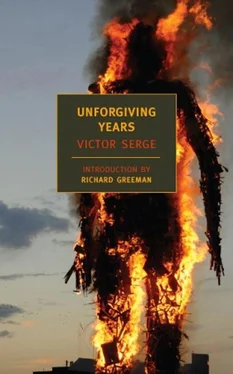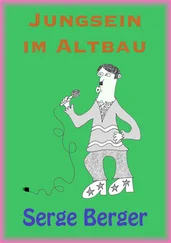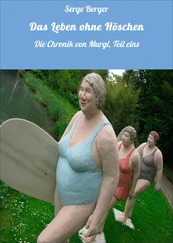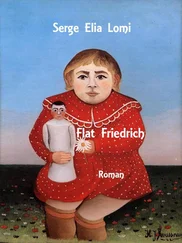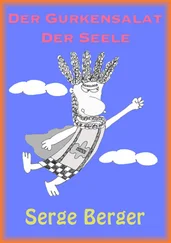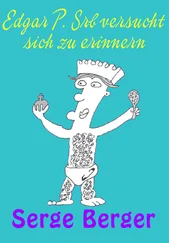“Have you had lovers, Céline? No? Well, you will. You’ll find out all about it. He’s my lover and I’m leaving him, do you understand? I have my reasons.”
“Yes, Madame.”
“I’m going away on a trip.”
“Ooh yes, Madame, it must be painful, Madame.”
Nadine opened her bag and pressed a banknote into the maid’s hand.
“And not a word. It’s nobody’s business but my own.”
“I’m sure it isn’t, Madame.”
Air, air, I don’t know what I’m doing anymore. The elevator. You never know how far down you’re going. Alone in the dark trench of the hall it all vanished: the room, the smoldering papers, the telephone, Céline, their hallucinatory exchange. Nadine stepped to one side and paused to appraise the street. Opposite the doorway, a flower vendor — chrysanthemums — was lowering her basket to the ground. A bus went by, then a couple, a very young couple talking fast and, it seemed, heatedly. The sidewalks were wet, glistening with swiftly alternating reflections of yellow and red from a neon sign. The street was calling: dive in and lose yourself.
Nadine walked quickly, with determination, wary of hailing a taxi straightaway. She needed to check the lay of the land. She stopped before the window of a shoe store: in the glass she could see behind her without turning around. Nobody, apparently, but Paris streets are so crowded at nine in the evening… Vaguely reassured all the same, Nadine turned the corner. Someone turned and faced her so quickly that she nearly bumped into the fellow. “Excuse me… Oh! You? Alain!”
As he took her arm his fingers squeezed her wrist, hard. His hand was hot.
“Well, what a piece of luck!” the voice sounded false to her. “What a coincidence! Are you in a hurry?”
He wanted to sound tender, but something held him back. Too frank — he couldn’t manage one of those intimate phrases that sounded so clear from his lips. Nadine was thinking: think quickly, act innocent, it’s logically impossible that he already knows. He’s not in touch with Sylvia, but he is with Mougin, with B, with R. Neither B nor R will find out for a while, and they may even be kept in the dark altogether, so as not to terrify the one or demoralize the other. The telephone was still ringing in her ears. She’d just said, “It’s my lover,” in an echo of her secret obsession. Now she said, “You called me?”
And as he was answering, “No, I don’t have your number,” she knew he was lying. So he knows. So, concealed not far from my door, he’s been watching. Probably with someone else who filled in while he dialed from the bar. The strong hand clamped to her wrist was upsetting Nadine who wished she hadn’t blundered into the first side street, with scarcely a light along it, even fewer passersby, and at the end a dark square lined along one side by the decrepit railings of a private mansion that looked abandoned. The hiss of tires made her turn. A black car came up behind them, sliding closer.
“Let’s cross,” Nadine said. “And let go of me. It makes me nervous. You know we mustn’t meet in the street, it’s against the rules.”
She felt better when he let go of her wrist. Two women and a man were walking toward them. Alain made no objection to crossing the street: since it was a two-way street, the black car could not hug the curb along the other sidewalk. The fear in Nadine’s body and soul redoubled: the dark presence of the car triggered her reflexes, the muscles think faster than the brain. Long ago, at the age of thirteen, Nadine had fought among partisans defending the ford across a river, fully aware that if the horse-men on the other bank were to pass over, death and torture would pass over with them. The great scythe, flagellation. Nadine knew in those far-off days that if captured she would be raped, flogged, possibly strung up. She had seen women and children her own age dangling from the trees in their undershirts with glistening, dirty flesh, offering swollen tongues and weirdly purpled breasts to the flies. Prone near the water’s edge, shielded by a screen of rushes, her belly pressed against the damp grass, the child Nadine took careful aim at a tall silhouette emerging from the facing bank — a centaur — and when it fell apart like a broken toy, the man tumbling off while the startled horse reared up in the shallows, the child Nadine joyfully cursed the defeated enemy. “You won’t be the one to pass over me, you horned devil!” Such schools build strength for the future. She had a jewel of a Browning in her handbag. She casually undid the clasp with the tips of her fingers. (If he notices, too bad!) The appetizing display of a dairy shop shone brightly on the sidewalk. Nadine halted at the edge of that light. The black car overtook them. Past the dairy, a dim bistro belched out loud voices. A ragged chorus in the back room joined in the song’s refrain — idiotic but loaded with jollity thick as a heavy wine:
One little lady in white,
In white!
In white!
Oh, oh, oh! Ah, ah, ah!
“Somebody’s having a good time,” Alain murmured, with a sad little snicker.
Nadine felt utterly remote from him, as though he’d never held her in his arms. The enemy. She was forced to playact, to cloak the hardness in her voice.
“Listen my young friend, you’re not behaving seriously! It’s not safe. You know we’ll see each other tomorrow!”
“And you know we won’t, not tomorrow, not ever. Your husband is a traitor.”
The rest of their brief exchange was as hackneyed as the lines of a bad play. “Are you crazy? What are you talking about!” “He confessed it to me himself, this morning.” “You’re crazy. It’s impossible, I don’t believe you.” “Ah, so you don’t believe me, you don’t believe me… Have you seen him?” “No.” This lie revived Nadine’s sincerity. “No? Then you don’t know yet! Listen, Nadine, listen darling, my head is spinning, I can hardly believe it myself, it’s as if the earth and the sky were both quaking at once. Him of all people! If only this were a comedy of errors! I went straight to Mougin, and he knew already. Your husband is a traitor. You can’t possibly go with him.” The refrain about the little lady in white, in white, in white submerged the young man’s unhappy voice. “I shouldn’t suffer on his account,” thought Nadine. “He really is a big kid who knows nothing, understands nothing, doesn’t have an inkling…” To place her hands on Alain’s temples, to plant kisses on Alain’s eyelids, to say, “My poor love, it’s too terrible, calm down, don’t judge so fast. Sacha will never become a traitor, he’s suffering worse than you, worse than the dead, his conscience is screaming… And that’s his only crime.” She looks at him with moist eyes.
“Beautiful Alain…”
But she also registers that the black car has come to a halt fifteen steps away. That no one is getting out, that fortunately there are people around and farther off even a policeman, his short cape hanging in stony folds. She pulls herself briskly together, as though to transmit a message learned by heart, and Alain is familiar with that gesture of hers since they used to work together.
“I don’t believe you, Alain. You’re telling me an incomprehensible story. I’m going to find out about these… these idiotic rumors. Someone may be plotting against Sacha… We’ll meet tomorrow. Now go away and simmer down.”
Alain, too, looks at the black car for a long moment (though in truth, none of this occurs in a measurable time); he turns his head, sees the police officer, maybe estimating the numbers of passersby, some of whom may be waiting for an agreed-upon signal. The bistro door swings open to disgorge a clutch of raucous couples, still flush with partying. A man’s hand cups a heavy female breast swathed in silk the color of wine lees. “In white, in white, in white, a li’l laaa-dy!” Nadine seizes the moment, and almost shouts: “Go away!”
Читать дальше
